Yaying Fei
SELA: Tree-Search Enhanced LLM Agents for Automated Machine Learning
Oct 22, 2024



Abstract:Automated Machine Learning (AutoML) approaches encompass traditional methods that optimize fixed pipelines for model selection and ensembling, as well as newer LLM-based frameworks that autonomously build pipelines. While LLM-based agents have shown promise in automating machine learning tasks, they often generate low-diversity and suboptimal code, even after multiple iterations. To overcome these limitations, we introduce Tree-Search Enhanced LLM Agents (SELA), an innovative agent-based system that leverages Monte Carlo Tree Search (MCTS) to optimize the AutoML process. By representing pipeline configurations as trees, our framework enables agents to conduct experiments intelligently and iteratively refine their strategies, facilitating a more effective exploration of the machine learning solution space. This novel approach allows SELA to discover optimal pathways based on experimental feedback, improving the overall quality of the solutions. In an extensive evaluation across 20 machine learning datasets, we compare the performance of traditional and agent-based AutoML methods, demonstrating that SELA achieves a win rate of 65% to 80% against each baseline across all datasets. These results underscore the significant potential of agent-based strategies in AutoML, offering a fresh perspective on tackling complex machine learning challenges.
Data Interpreter: An LLM Agent For Data Science
Mar 12, 2024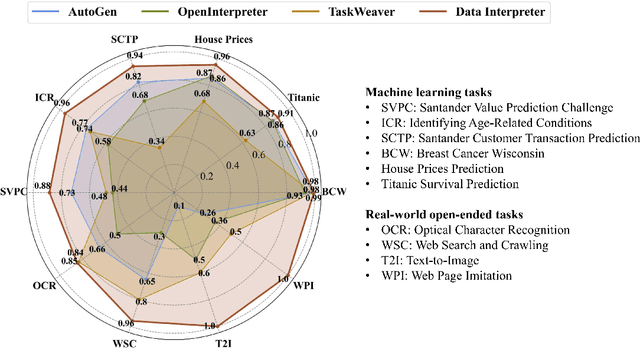

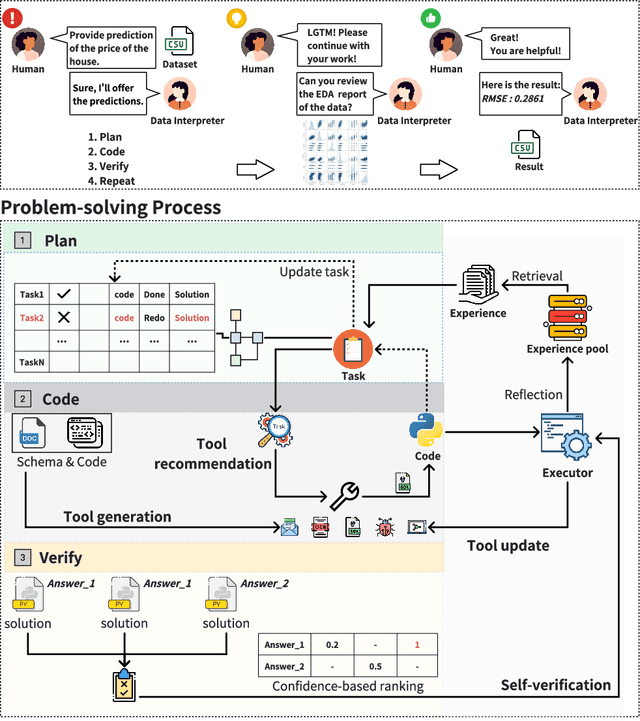

Abstract:Large Language Model (LLM)-based agents have demonstrated remarkable effectiveness. However, their performance can be compromised in data science scenarios that require real-time data adjustment, expertise in optimization due to complex dependencies among various tasks, and the ability to identify logical errors for precise reasoning. In this study, we introduce the Data Interpreter, a solution designed to solve with code that emphasizes three pivotal techniques to augment problem-solving in data science: 1) dynamic planning with hierarchical graph structures for real-time data adaptability;2) tool integration dynamically to enhance code proficiency during execution, enriching the requisite expertise;3) logical inconsistency identification in feedback, and efficiency enhancement through experience recording. We evaluate the Data Interpreter on various data science and real-world tasks. Compared to open-source baselines, it demonstrated superior performance, exhibiting significant improvements in machine learning tasks, increasing from 0.86 to 0.95. Additionally, it showed a 26% increase in the MATH dataset and a remarkable 112% improvement in open-ended tasks. The solution will be released at https://github.com/geekan/MetaGPT.
Does Role-Playing Chatbots Capture the Character Personalities? Assessing Personality Traits for Role-Playing Chatbots
Oct 30, 2023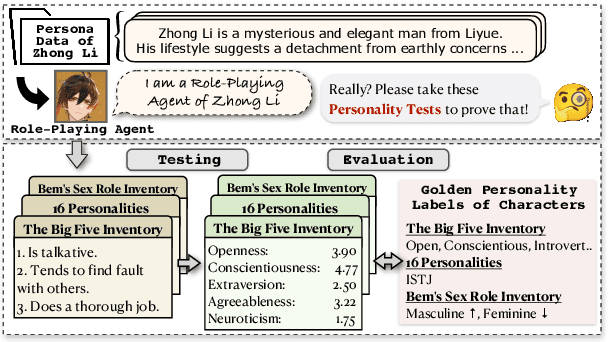
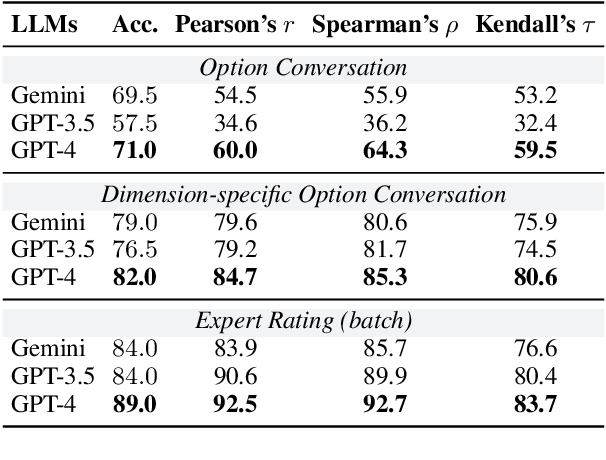
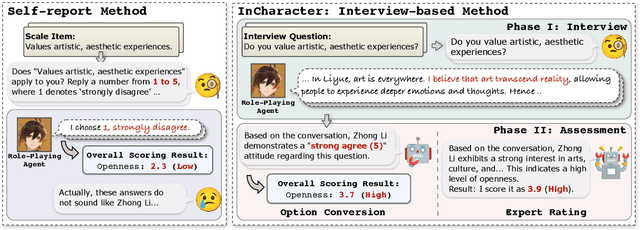
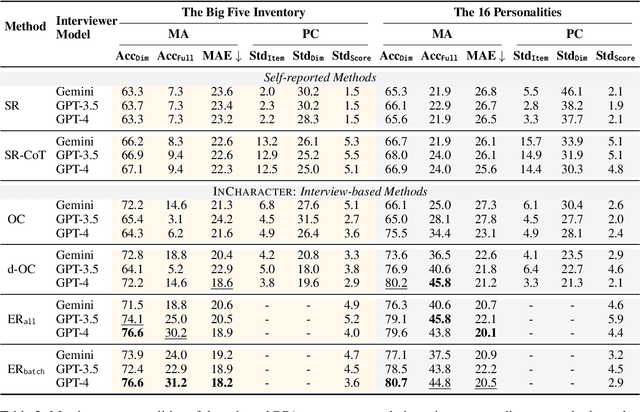
Abstract:The emergence of large-scale pretrained language models has revolutionized the capabilities of new AI application, especially in the realm of crafting chatbots with distinct personas. Given the "stimulus-response" nature of chatbots, this paper unveils an innovative open-ended interview-style approach for personality assessment on role-playing chatbots, which offers a richer comprehension of their intrinsic personalities. We conduct personality assessments on 32 role-playing chatbots created by the ChatHaruhi library, across both the Big Five and MBTI dimensions, and measure their alignment with human perception. Evaluation results underscore that modern role-playing chatbots based on LLMs can effectively portray personality traits of corresponding characters, with an alignment rate of 82.8% compared with human-perceived personalities. Besides, we also suggest potential strategies for shaping chatbots' personalities. Hence, this paper serves as a cornerstone study for role-playing chatbots that intersects computational linguistics and psychology. Our resources are available at https://github.com/LC1332/Chat-Haruhi-Suzumiya
ChatHaruhi: Reviving Anime Character in Reality via Large Language Model
Aug 18, 2023



Abstract:Role-playing chatbots built on large language models have drawn interest, but better techniques are needed to enable mimicking specific fictional characters. We propose an algorithm that controls language models via an improved prompt and memories of the character extracted from scripts. We construct ChatHaruhi, a dataset covering 32 Chinese / English TV / anime characters with over 54k simulated dialogues. Both automatic and human evaluations show our approach improves role-playing ability over baselines. Code and data are available at https://github.com/LC1332/Chat-Haruhi-Suzumiya .
 Add to Chrome
Add to Chrome Add to Firefox
Add to Firefox Add to Edge
Add to Edge